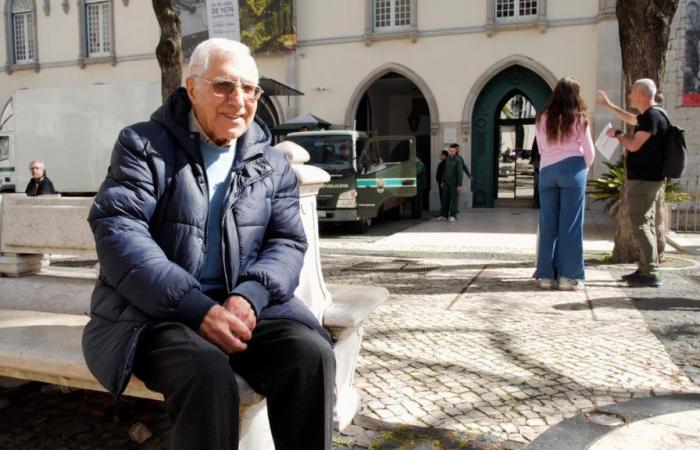Entering the year of the Carnation Revolution, Américo remembers that there was already something “suspicious in the air”. The truth is that in the early hours of March 16, 1974, a column of around two hundred soldiers commanded by Major Armando Ramos left Infantry Regiment 5, in Caldas da Rainha, and took the road on the way to Lisbon. His objective was to overthrow the government of Marcello Caetano, for which he expected the support of other military forces, namely Lamego, Mafra and Vendas Novas, something that would not happen, frustrating the path of a coup d’état.
“In March of that year, and it was only realized later, there was a kind of beginning of a Revolution. We realized that something was about to happen, that it was imminent, but we still didn’t know when or where.”
And it was about to happen, in fact. On April 25, 1974, Américo left home, in the Benfica area, and took the train to work. With the Revolution underway, the now vice-president of ARMIL, the Lisbon Misericórdia Pensioners Association, recalls “that people were already saying that the military were on the streets to bring down the dictatorship.”
Already armed with some information he had heard among train users and what was playing on the radio, Américo headed to the Central Services of Misericórdia de Lisboa, in Largo Trindade Coelho. Leaving Rossio train station he repeated what he did every day: climbing Escadinhas do Duque and glancing at Largo do Carmo, which was still empty.
“The day started like any other. I went to work and it was only throughout the morning that the information arrived. It was only then that we realized that something had happened. At noon, the Santa Casa services informed the staff that they were going to close and we left, each one to our own home.”
Américo says that he was afraid of what was coming, but, even so, he realized that history was being made and that, one way or another, he too would have the opportunity to live it.
Even so, after his children left the “Salesianos de Lisboa” College, in Campo de Ourique, and after picking them up at an aunt’s house in that area and placing them “safely at home”, Américo still returned to Largo do Carmo to watch “in the front row” the siege of the Carmo Barracks. Inside, where the National Republican Guard Museum is now located, Marcello Caetano took refuge from the soldiers of the Armed Forces Movement. Salgueiro Maia and his comrades-in-arms would then enter the barracks, demanding the surrender of the previously president of the Council of Ministers, who asked that power not fall to the streets.
A crowd watched everything outside. Américo was nearby. “I even saw President Marcello Caetano get into a chaimite and go to the airport taken by a boy friend of mine, who was in the military at the time”, he remembers, pointing to a window of a building on Rua da Condessa: “We ended up being in that building, at number 9, several times, to discuss among everyone what could be improved at Misericórdia”.
Five decades after the moment that Américo describes as being “the most important day for Portugal”, he states that a lot has already been done in Santa Casa, but that there are still measures designed at the time “that have yet to be achieved”.
“We created a Workers’ Committee at the time at Santa Casa, we fought for rights that, previously, some employees did not have, we managed to establish payments for services, which were previously not paid, we improved the cafeteria service with higher quality and lowering costs for the worker and we even restructured some careers. But we would have liked to have done more.”
Sitting on one of the benches facing the old GNR Barracks, and from the height of its almost 90 years of history, Américo Lopes has no doubts when the issue is freedom. “The Revolution brought freedom to a people who were oppressed and for me the question is simple: April 25th always! Today and always!”






